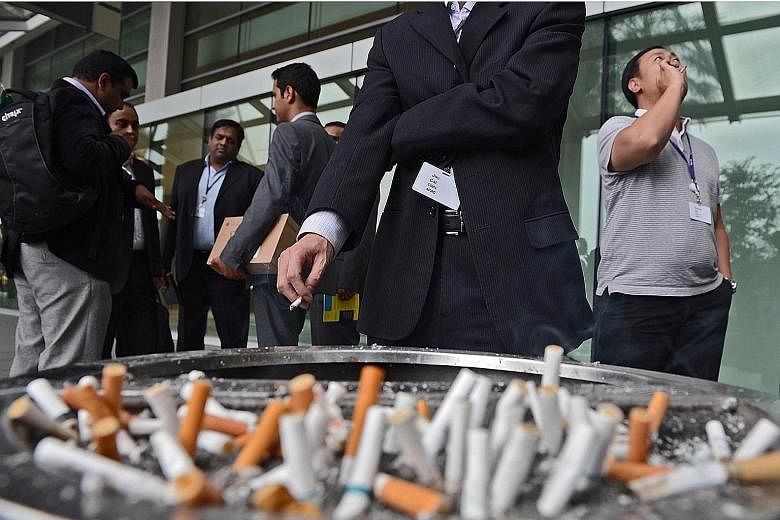One out of every five people who die of cancer has lung cancer, according to the Singapore Cancer Society.
It is the second-most-common cause of cancer among men, and the third among women, it added.
Yet, many people still think lung cancer happens only to smokers.
Dr Steve Yang, a specialist in respiratory medicine and a consultant at Raffles Internal Medicine Centre, debunks some common myths surrounding this disease.
ONLY SMOKERS GET LUNG CANCER
Fact: Anyone can develop this disease, though current and former smokers are at a higher risk.
As many as 20 per cent of the people who die of lung cancer do not smoke or use any other form of tobacco. Some of the other risk factors include:
Radon gas: This gas occurs naturally outdoors in harmless amounts, but it can get trapped in houses and buildings. Studies have found that lung cancer risk is higher in those who have lived for many years in a radon-contaminated house.
As radon gas is an odourless gas that cannot be seen, the only way to know whether it is a problem in one's home is to test for it. Unfortunately, we do not have data on radon levels in Singapore.
Second-hand smoke: Each year, an estimated 7,000 adults die of lung cancer as a result of breathing in second-hand smoke. Laws that ban smoking in public places have helped to reduce this danger.
Cancer-causing agents at work: Some workplaces can expose one to carcinogens or cancer-causing agents, like asbestos and diesel exhaust. If you work around these agents, you should limit your exposure whenever possible.
Air pollution: It has long been known that both indoor and outdoor air pollution contribute to lung cancer. In 2013, the World Health Organisation classified outdoor air pollution as a carcinogen.
ONLY OLD PEOPLE GET LUNG CANCER
Fact: Lung cancer can strike people of any age, including children, though it is more common in older folk. About two out of three people diagnosed with lung cancer are 65 or older; fewer than 2 per cent of all cases are found in people younger than 45. The average age at the time of diagnosis is about 70.
Overall, the chance that a man will develop lung cancer in his lifetime is about one in 13; for a woman, the risk is about one in 16. These numbers include both smokers and non-smokers, though the risk is higher for smokers.
One particular type of lung cancer, bronchioloalveolar cancer, is increasingly showing up in younger, non-smoking women.
THERE IS NOTHING I CAN DO TO LOWER MY RISK OF LUNG CANCER
Fact: There are many things one can do to lower one's risk of lung cancer.
- Stop smoking. Smoking is the biggest cause of lung cancer, as well as the single greatest avoidable risk factor. If you stop smoking for 10 years, your risk drops by 50 per cent.
- Avoid prolonged exposure to second-hand smoke and heavy air pollution.
- Eat healthily. A healthy diet that consists of a lot of fruit and vegetables may help reduce one's risk of lung cancer.
- Exercise regularly.


